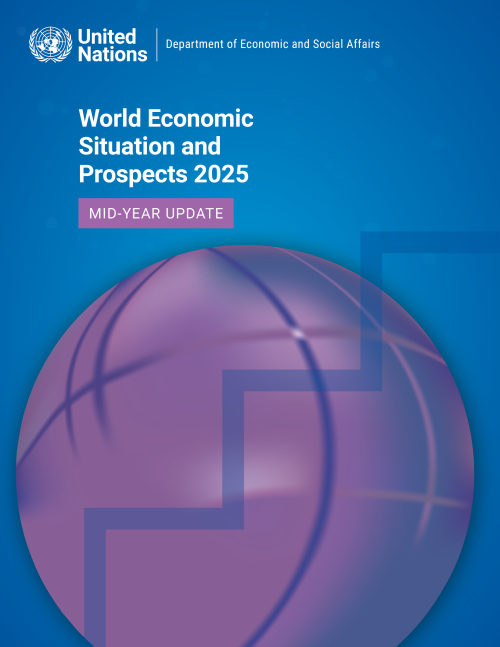
The world economy is at a precarious moment. Heightened trade tensions, along with policy uncertainty, have significantly weakened the global economic outlook for 2025. Higher tariffs—resulting in a significant increase in the effective tariff rate in the United States of America—are likely to strain global supply chains, drive up production costs and delay critical investment decisions, while also contributing to financial market volatility. Global economic growth is now projected to slow to 2.4 per cent in 2025, down from 2.9 per cent in 2024, and 0.4 percentage points below the January forecast. The downward revisions in growth forecasts are broad-based, affecting both developed and…
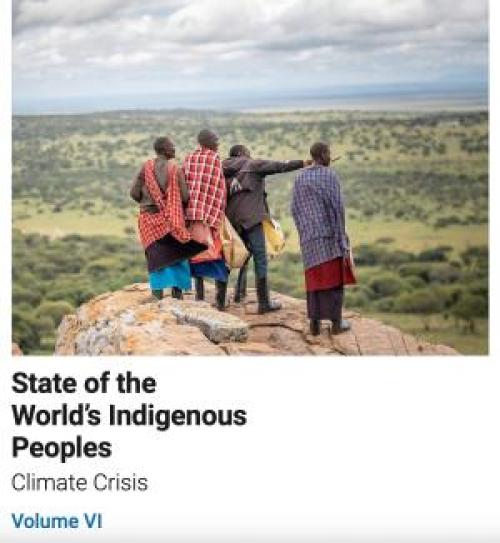
The sixth edition of the State of the World's Indigenous Peoples focuses on Climate Crisis. It focuses on the vital role of Indigenous peoples in addressing the impacts of climate change. Although Indigenous Peoples account for only around 5 per cent of the world’s population, they effectively manage and protect an estimated 80 per cent of the Earth’s biodiversity and about 40 per cent of protected areas and ecologically intact landscapes. Since Indigenous Peoples first came to the United Nations, they have emphasized the fundamental importance of their relationship with their lands, territories and resources, which hold a deep cultural and spiritual significance within their societies…
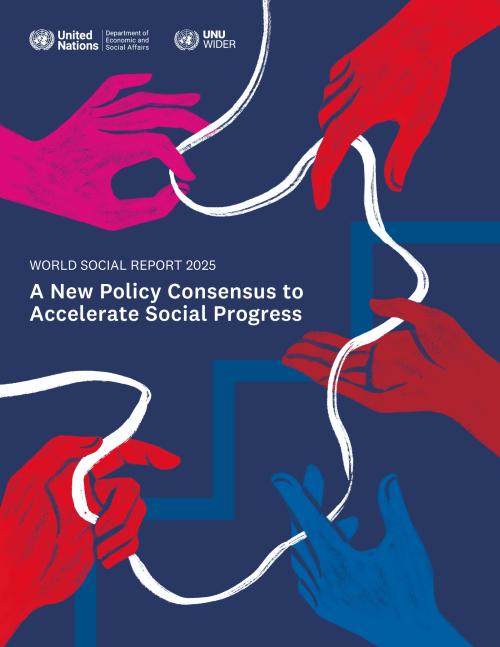
Economic insecurity, staggering levels of inequality, declining social trust and social fragmentation are destabilizing societies worldwide. The World Social Report 2025, reveals trends that are threatening communities and demand immediate, decisive policy action. The report calls for a new policy consensus anchored in three principles—equity, economic security for all, and solidarity—that are essential to strengthen the three dimensions of sustainable development.
The report is the first to be co-produced with the United Nations University World Institute for Development Economics Research (UNU-WIDER). This collaboration brings new research insights into the report,…
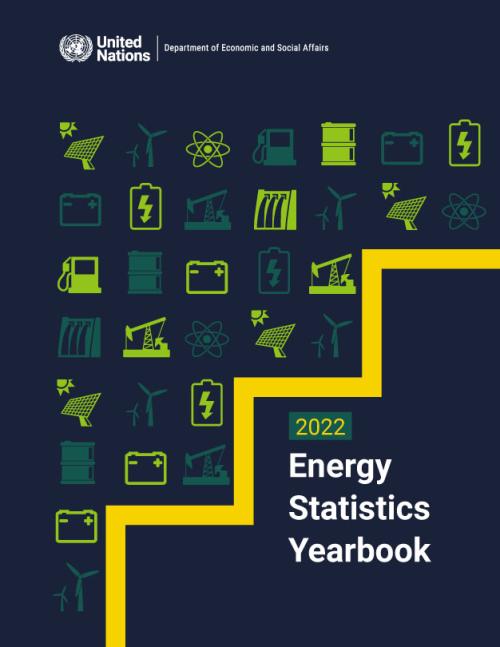
The 2022 Energy Statistics Yearbook is the sixty-sixth issue in a series of annual compilations of internationally comparable statistics summarizing world energy trends, which commenced under the title World Energy Supplies in Selected Years, 1929-1950.
Annual data for more than 200 countries and areas for the period 2019 to 2022 are presented on production, trade and consumption of energy for solid, liquid, and gaseous fuels, electricity, and heat. Per capita consumption series are also provided for all energy products.
Graphs are included to illustrate historic trends and/or changes in composition of production and/or consumption of major energy products.…
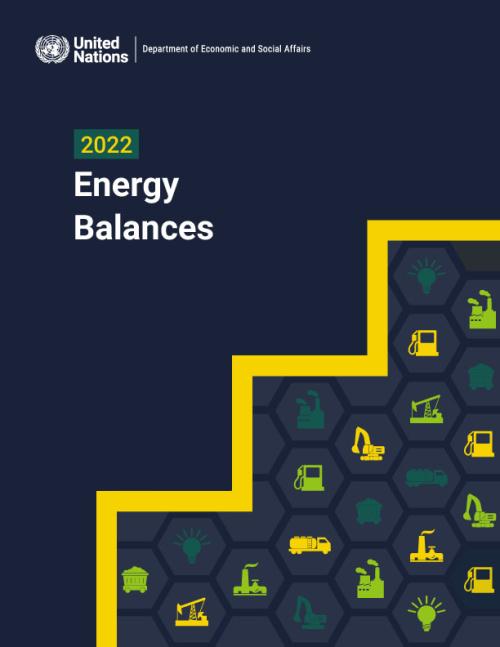
The 2022 Energy Balances publication presents energy data for over 200 countries and areas in a format which shows the overall picture of the yearly production, trade, transformation and consumption of energy products utilized in each country or area shown, for the years 2021 and 2022. Such a format, presented in a common energy unit, the Terajoule, is useful in assessing and analysing supply and consumption patterns across both products and countries in detail on an internationally comparable basis.
It is the eleventh issue of Energy Balances as a stand-alone publication, replacing the previous series of Energy Balances and Electricity Profiles. The…
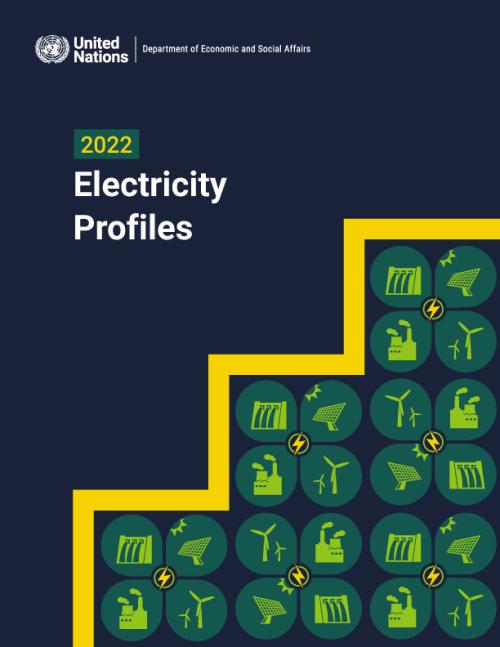
The 2022 Electricity Profiles publication provides an overall picture of the electricity sector of over 200 countries and areas on an internationally comparable basis, for the years 2017-2022. It displays detailed information on production, trade and consumption of electricity, on net installed capacity and thermal power plant inputs and efficiency for each of these countries and areas.
This is the eleventh issue of Electricity Profiles as a stand-alone publication, replacing the previous series of Energy Balances and Electricity Profiles.
The publication is available in printed and electronic (PDF format) versions.
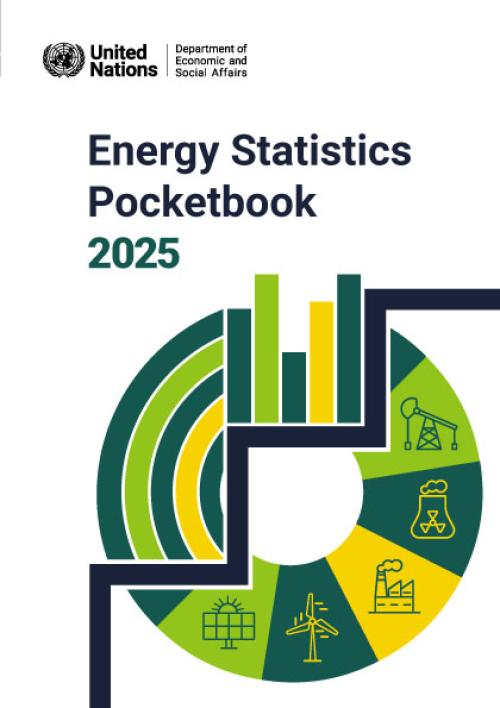
The 2025 Energy Statistics Pocketbook publication is the eighth in a series of pocketbook compilations on energy statistics designed to highlight the availability of data on various aspects of energy production, transformation and use and its linkages to other key statistics. The information in this publication is primarily based on the energy data available in the 2022 editions of the Energy Statistics Yearbook, the Energy Balances, and the Electricity Profiles.
The Energy Statistics Pocketbook aims at providing additional information by highlighting key indicators and using different visualizations to show developments, dependencies and distributions in a way that…
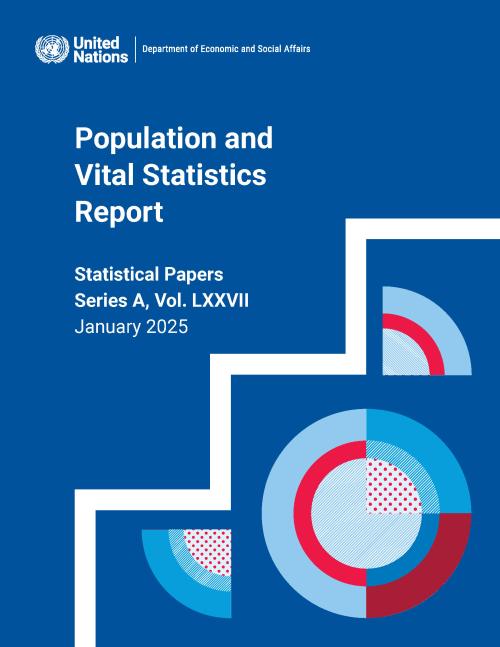

In an era marked by complex and interwoven crises, the role of the United Nations in preparing for the future has never been more critical. This review of UN DESA’s foresight and preparedness efforts shows how the Department’s economic and demographic forecasts, capacity development programmes, and work towards accelerating an inclusive and just transition help governments and people make strategic choices to shape and prepare for the future they want.
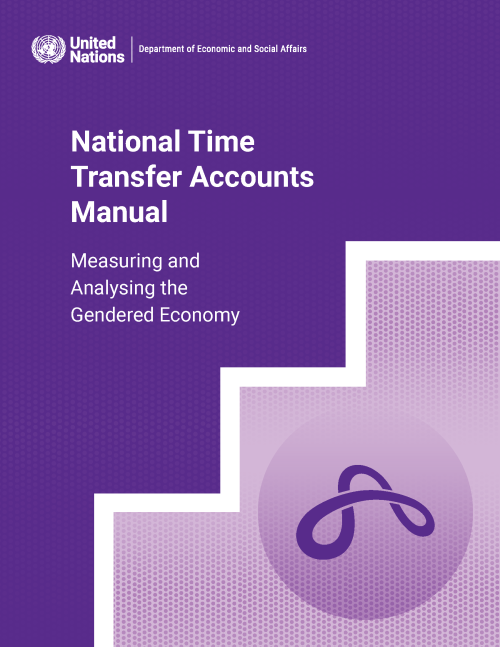
This manual picks up where the previous manual in the series left off. The earlier manual, on the methodology of National Transfer Accounts (NTAs), shows how National Accounts data can be used to construct age profiles of economic production and consumption and to illustrate how resources flow from persons in age groups producing more than they consume to those in age groups producing less than they consume (United Nations, 2013).
The NTA project calls this system of age-based transfers the “generational economy”. Uncovering and elucidating the role of such transfers has been the project’s major contribution. NTA research has revealed how countries have evolved various means…
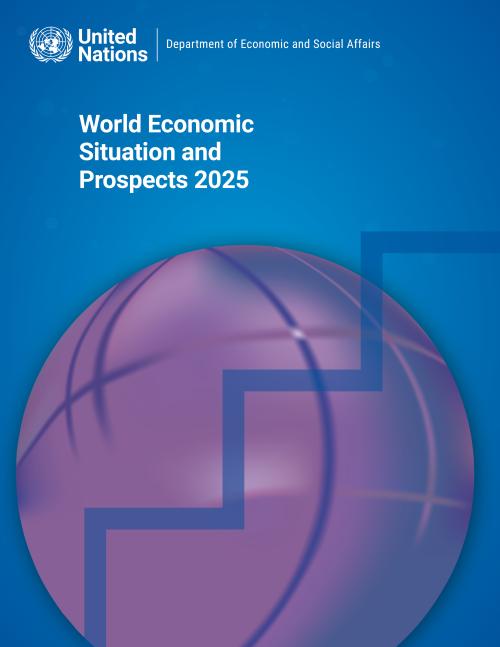
Global economic growth is projected to remain at 2.8 per cent in 2025, unchanged from 2024, according to the United Nations flagship report, World Economic Situation and Prospects (WESP) 2025. While the global economy has demonstrated resilience, withstanding a series of mutually reinforcing shocks, growth remains below the pre-pandemic average of 3.2 per cent, constrained by weak investment, sluggish productivity growth, and high debt levels.
The report notes that lower inflation and ongoing monetary easing in many economies could provide a modest boost to global economic activity in 2025. However, uncertainty still looms large, with risks stemming from geopolitical conflicts,…
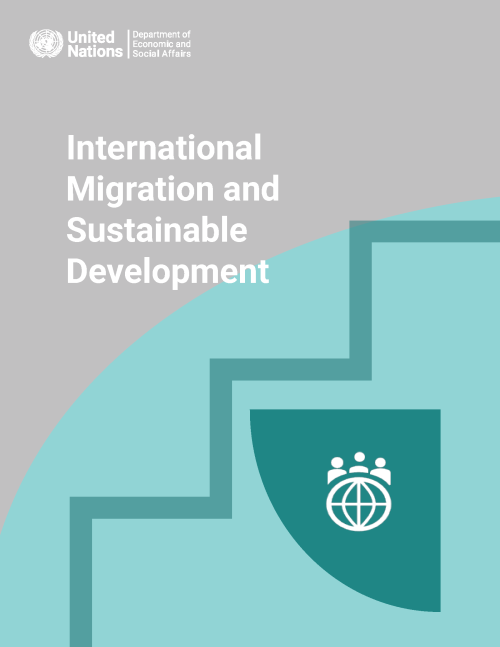
International Migration and Sustainable Development examines the linkages between international migration and the social, economic and environmental dimensions of sustainable development. It discusses how international migration is defined and measured, examines levels and trends in international migration at the global and regional level and by income group, explores the growing scope and impact of international migration and reviews its relevance for achieving internationally agreed sustainable development Goals and targets. The report also offers policy recommendations focusing on the social, economic and environmental causes and consequences of…
 Welcome to the United Nations
Welcome to the United Nations